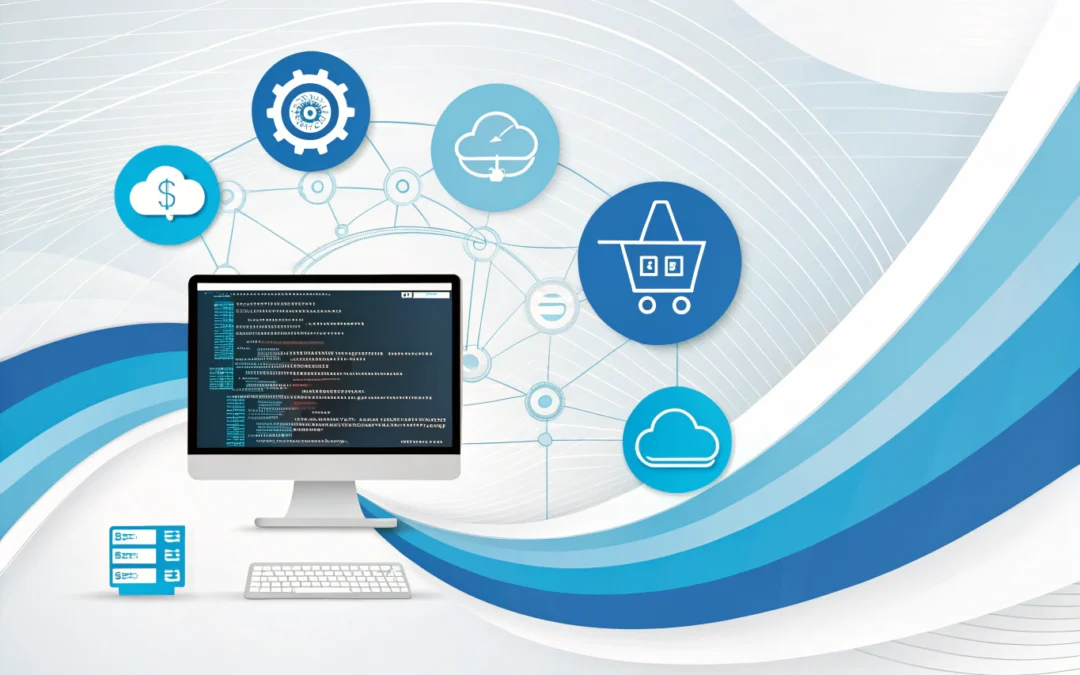The Intersection of AI and Second-Hand Marketplaces
In the bustling world of online marketplaces, platforms like etsy or thredup or poshmark have carved out distinct niches. They’re not just places to buy and sell; they’re ecosystems where technology, sustainability, and consumer behavior converge. The question isn’t which one is better, but rather, how are they leveraging technology, particularly AI, to transform the way we interact with second-hand goods?
AI: The Digital Middleman
AI in these platforms acts much like a digital middleman—facilitating transactions, enhancing user experience, and personalizing interactions, which is particularly important when comparing platforms like Depop vs Poshmark in terms of their technological approaches. Let’s think of AI as that intern who’s been tasked with sorting through a mountain of vintage denim or rare collectibles. The AI intern can scan vast amounts of data at lightning speed, categorize items, and even predict what you might want to buy next based on your past behavior. It’s not infallible—sometimes it might suggest a pair of neon socks when you were clearly eyeing a classic leather jacket—but it’s constantly learning.
Data-Driven Personalization
Platforms like Etsy, ThredUp, and Poshmark thrive on data. Each interaction—be it a click, search, or purchase—enhances a neural network that becomes increasingly proficient at predicting user preferences. AI’s capability to identify trends, recognize patterns, and generate surprisingly intuitive product recommendations underpins these platforms. However, the real value lies not just in the data but in how it’s utilized to craft tailored experiences that transform shopping into an engaging dialogue with a well-informed friend. This data-driven approach is a key advantage when evaluating platforms like Etsy or ThredUp or Poshmark, as it allows for a highly personalized shopping experience.
Trust and Authenticity
In a marketplace riddled with skepticism, AI helps build trust. It’s like having that trustworthy intern double-check the provenance of a vintage dress. On platforms like eBay, even features like the ability to reprint shipping label benefit from AI-driven efficiencies, streamlining processes for sellers while ensuring accuracy. As AI becomes more sophisticated, its role in maintaining marketplace integrity becomes invaluable.
Challenges and Opportunities
The integration of AI isn’t without its hurdles. Ethical concerns loom large—privacy, data security, and algorithmic bias are real issues that need addressing. However, the potential benefits are transformative. Imagine a marketplace where AI not only curates products for you but also helps reduce waste by suggesting sustainable alternatives or facilitating the resale of goods you no longer need.
Actionable Steps for Businesses
For businesses looking to harness the power of AI in second-hand marketplaces, here are some actionable recommendations:
- Invest in AI tools that enhance personalization while respecting user privacy. Transparency is key.
- Use AI to improve product authentication processes, thereby building trust with your consumers.
- Continuously train AI models to minimize biases and ensure fair representation of all vendors.
- Leverage AI to drive sustainable practices by recommending eco-friendly products and optimizing supply chains.
The second-hand marketplace is not just about transactions; it’s a dynamic arena where technology and consumer values align. AI, when used thoughtfully, can be the catalyst that propels these platforms into a future that’s not just smarter but also more ethical and sustainable. This transformative potential makes choosing between Etsy or ThredUp or Poshmark an intriguing decision for sellers looking to capitalize on advanced technological integration in their business models.
FAQs
What is the difference between ThredUP and Poshmark?
ThredUP and Poshmark are both platforms for buying and selling used clothing, but they operate differently. ThredUP is an online consignment and thrift store where you send your clothes to ThredUP, and they handle everything from photography to pricing. They pay you upfront for items they accept or consign higher-value items. In contrast, Poshmark provides a marketplace where sellers list and ship their own items directly to buyers, giving sellers more control over pricing and inventory but requiring more effort in terms of listing and customer interaction.
What is the difference between Etsy and Poshmark?
Etsy and Poshmark cater to different types of sellers and buyers. Etsy is known for handmade or vintage items and craft supplies. It attracts buyers looking for unique, handmade, or personalized products. Poshmark, on the other hand, focuses exclusively on fashion and accessories, providing a platform for individuals to buy and sell new or used clothing and accessories. The main difference lies in the type of merchandise each platform specializes in and the nature of their selling processes.
What is the downside to Poshmark?
The downside to Poshmark involves several aspects. Firstly, since sellers are responsible for their own listings, including photography and shipping, the effort required can be significant. Secondly, Poshmark charges a flat 20% commission on sales over $15, which is higher than some other platforms. Additionally, the platform can be quite competitive, making it challenging for new sellers to get noticed. Finally, since interactions are handled between buyers and sellers directly, issues like disputes or returns can sometimes complicate the selling process.
How does ThredUP work for selling?
Selling on ThredUP involves sending your unwanted clothes to ThredUP using a prepaid shipping label provided by the site. Once they receive your items, ThredUP’s team inspects them and decides which pieces they will accept based on their quality and the current demand for such items. Accepted items are then photographed, priced, and listed on the ThredUP website. Sellers receive a portion of the selling price either upfront for lower-value items or as a consignment for more expensive items. Unaccepted items can be returned to you for a fee or responsibly recycled.
Checkout ProductScope AI’s Studio (and get 200 free studio credits)

